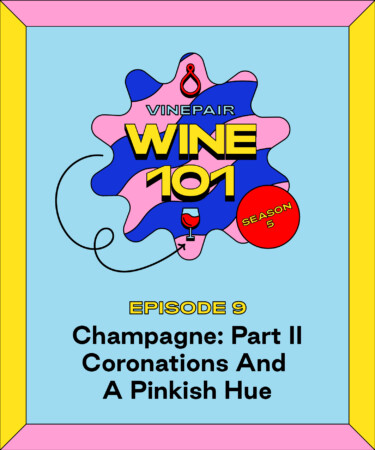Given the Champagne region’s proximity to Paris, Switzerland, Flanders, and the Rhine river, the area has historically been a major crossroads for trade routes. As such, it was a very contested land marked by tumultuous, bloodstained history. As such, it wasn’t until the 5th century and the advent of the monarchy that wine production took off in the Champagne region.
Following the coronation of Clovis I, the newly baptized king granted an abundance of land to the bishop who performed the baptism in what is now the Champagne region with its soil rife with wine-friendly clay. This land quickly became the spiritual center of France, Abbeys popped up left and right, and the monks who inhabited them got busy planting vines. The resulting wine, or early Champagne, wasn’t bubbly or clear like it is today, but still, slightly pink blends of Pinot Noir and other local varieties. Thanks to the unique soil from which these grapes emerged, the resulting wines were fantastic, but highly acidic. For the next several hundred years, a quality battle between Burgundy and Champagne ensued, and it wasn’t until vintners in Champagne embraced vin gris, that the tides started to turn in their favor.
Last week, we talked about the wine-less history of Champagne when the world’s continents were shifting over hundreds of millions of years, laying the groundwork of what was to come. But today, we’re going to fast-forward to when people — and wine — started appearing in this championed wine region. Tune in for more.
Listen Online
Follow Keith on Instagram @VinePairKeith. Rate and review this podcast wherever you get your podcasts from. It really helps get the word out there.
“Wine 101” was produced, recorded, and edited by yours truly, Keith Beavers, at the VinePair headquarters in New York City. I want to give a big old shout-out to co-founders Adam Teeter and Josh Malin for creating VinePair. Big shout-out to Danielle Grinberg, the art director of VinePair, for creating the most awesome logo for this podcast. Also, Darby Cicci for the theme song. And I want to thank the entire VinePair staff for helping me learn something new every day. See you next week.
*Image retrieved from Max Maximov via stock.adobe.com
